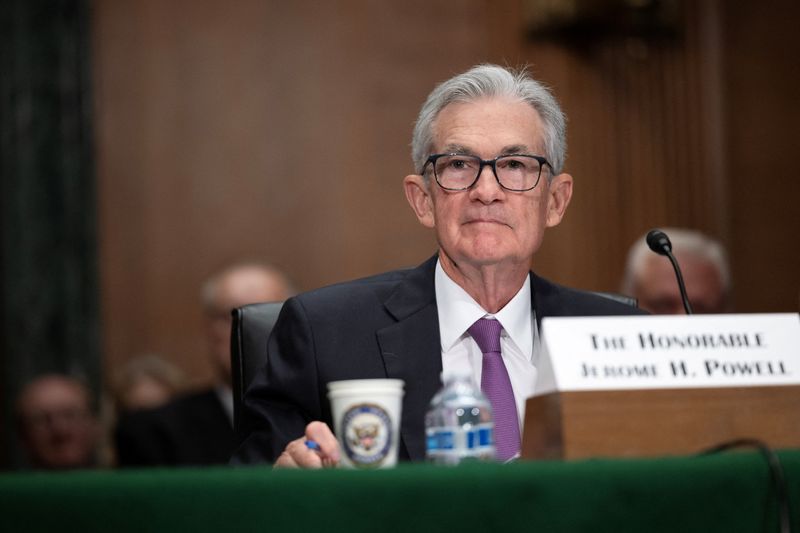By Pete Schroeder
WASHINGTON (Reuters) - Federal Reserve Chairman Jerome Powell significantly downplayed the possibility of the central bank issuing its own digital currency, and said if it ever came to pass, the government would play a limited role.
Testifying before Congress Thursday, Powell said policymakers were "nowhere near" taking action on adopting such a tool.
“People don’t need to worry about a central bank digital currency, nothing like that is remotely close to happening anytime soon," he told the Senate Banking Committee.
He added that the Fed has no interest in establishing accounts for individuals that would compete with the banking system, and it would not support any Fed monitoring of personal financial transactions.
"If we were to ever do something like this, and we’re a very long way from even thinking about it, we would do this through the banking system, the last thing...we the Federal Reserve would want would be to have individual accounts for all Americans," he said.
BASEL CHANGES
At the same hearing, Powell said that bank regulators will be taking a deliberate approach to overhauling a contentious plan to raise large bank capital.
He said he anticipates the central bank will consider changes to the so-called "Basel III endgame" proposal over the course of 2024, noting it was more important to get the rule right than complete it quickly.
Powell echoed comments he made a day prior in separate congressional testimony, noting that he anticipated broad and material changes to the proposal, which was unveiled in July and has been subjected to relentless industry opposition since.
The proposal would overhaul how roughly three dozen of the nation's largest banks gauge their risk, and in turn how much capital they have to hold as a cushion against losses.
Members of the Senate Banking Committee from both parties aired concerns about the proposal, including how it could impact the affordability of mortgage lending and whether it could push riskier activity into less-regulated portions of the financial system.
Powell said regulators were "well aware of and focused on those issues," but did not offer specifics on potential tweaks.
However, Senator Elizabeth Warren criticized Powell, arguing that he should defer to Vice Chair for Supervision Michael Barr, the Fed's top regulatory official who led drafting of the original proposal.

But Powell defended his stance, saying Barr has the power to bring proposals forward but he and other Fed board members are free to consider those plans independently when they vote. When proposed, Powell aired concerns about the proposal but voted in favor of advancing it.
“When I do monetary policy, I have one vote," he said. "It’s not different for the Vice Chair for Supervision."